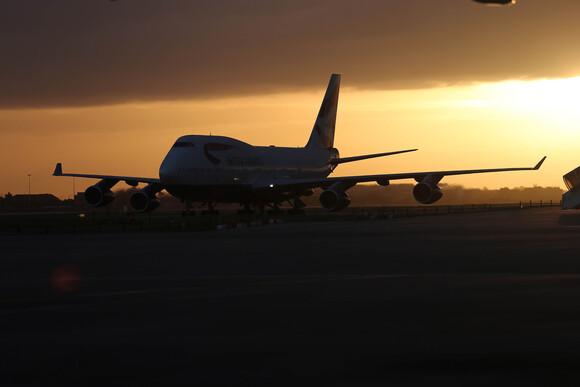
British Airways (BA) confirmed July 17 that it will not resume Boeing 747 commercial service after operating the aircraft for almost 50 years.
The airline “proposed” that its remaining 31 747-400s will be retired immediately “as a result of the devastating impact the COVID-19 pandemic has had on the airline and the aviation sector.”
“This is not how we wanted or expected to have to say goodbye to our incredible fleet of 747 aircraft,” BA chairman and CEO Alex Cruz said. “It is a heart-breaking decision to have to make. So many people, including many thousands of our colleagues past and present, have spent countless hours on and with these wonderful planes. They have been at the center of so many memories, including my very first long-haul flight.”
BA’s 747-400 fleet is 23 years old on average, and the aircraft were scheduled to be phased out fully by the end of 2024 before the pandemic hit. The airline took delivery of the -400s between July 1989 and April 1999. At its peak, BA flew 57 747-400s and was still the largest operator of the passenger type earlier in 2020.
The airline has long-decided to replace its 747s with smaller aircraft, placing orders for 18 Airbus A350-1000s, 42 Boeing 787s and 18 777Xs. Six of the A350s and 32 787s have been delivered so far.
“We have committed to making our fleet more environmentally friendly as we look to reduce the size of our business to reflect the impact of the COVID-19 pandemic on aviation,” Cruz said. “As painful as it is, [retiring the 747] is the most logical thing for us to propose.” BA predecessor British Overseas Airways Corporation (BOAC) made its first scheduled 747 flight on April 14, 1971.
BA also has a fleet of 12 Airbus A380s that is currently parked. The airline has made no decision about its A380s future so far.
In Europe and worldwide, the 747 has been a rare sight for some time. The COVID-19 crisis is now accelerating the process. KLM ceased 747 operations in March with its sister company Air France having phased out its last 747 already in 2016. Virgin Atlantic said in May that it will not return its seven 747-400s to service; the aircraft has formed the backbone of the airline ever since it was established in 1984. Qantas has performed three 747 farewell flights over the past few days, having decided to phase out the aircraft.
Lufthansa is the one European airline that will most likely continue to operate the 747. Its fleet currently consists of 11 747-400s and 19 747-8s, most of which are either parked or stored as the airline awaits a reopening of long-haul markets, most importantly to the U.S. The 747-8s were only delivered between 2012 and 2015. Korean Air, with ten of the latest generation 747s, and Air China with seven, are in a similar situation. Lufthansa’s eleven 747-400s would be next on the list for a phase-out of a fleet type should the crisis continue for longer than expected. The airline has no plans to permanently retire the 747-8s.
According to Aviation Week Intelligence Network Fleet Data, 304 747s of all variants are currently in service, with 15 more on firm order, 13 in parked/reserve status, 84 parked and 103 stored. But of the 304 active 747s, only 16 are 747-400s and ten are 747-8s. The vast majority (244) of active 747s are freighters, comprised of 101 747-400Fs; 87 747-8Fs; 36 747-400ERFs; and 20 747-400SFs. Of the current top ten 747 operators, only one is utilizing a passenger version: a single Asiana 747-400.
